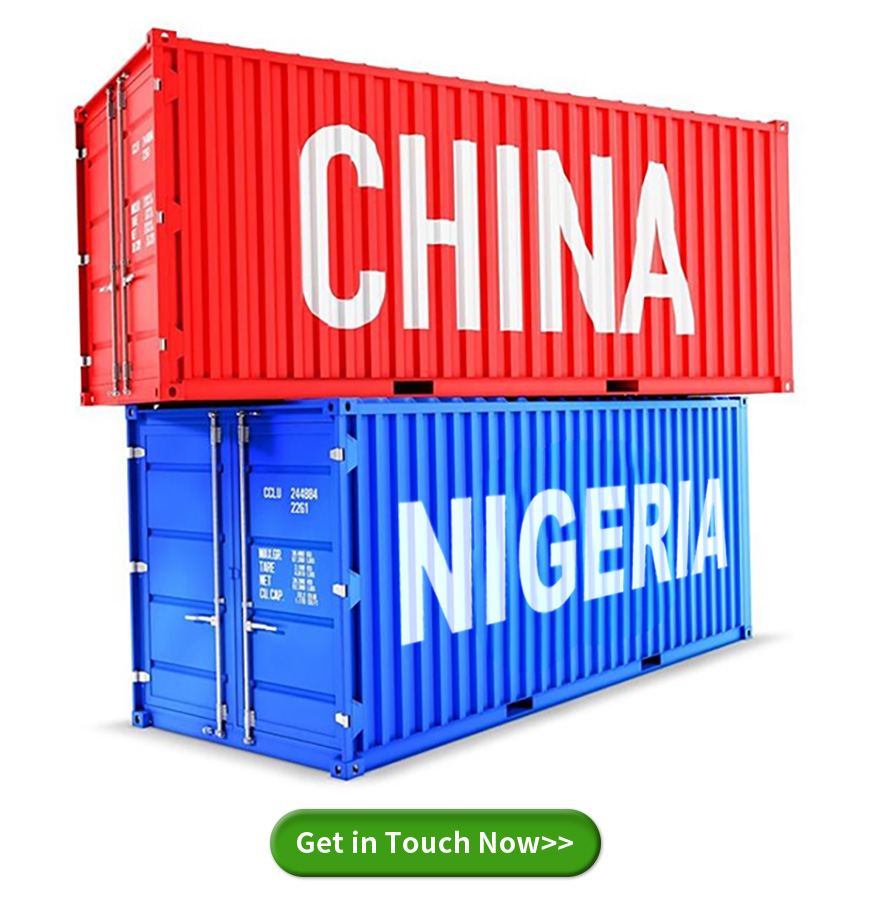How to Start a Profitable Import Business in Nigeria
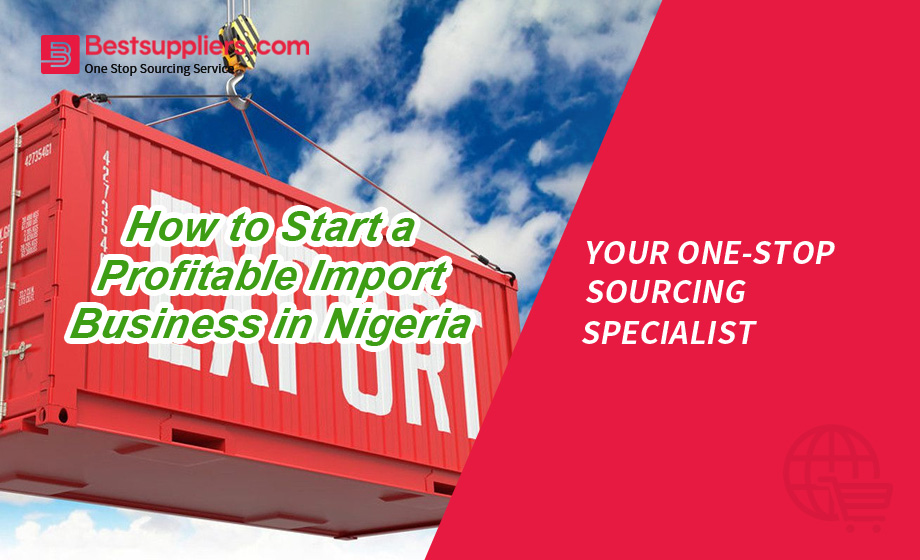
Before learning how to start a profitable import business in Nigeria. Let's understand what an import business is. The import business is simple, someone sources customized products from foreign countries for wholesale at low prices and then sells goods to the local market at a higher price for profit.
Five years ago, if you wanted to be a successful importer in Nigeria, you needed a large amount of US dollar reserves to do import business. This is no longer the case today, and almost anyone can become a multi-millionaire by importing and selling customized goods from countries like China on a small scale. If you are considering entering a mini-import business or you want to expand your import business, this article analyzes the current state of the import business in Nigeria and explains the steps of an import business. You can also learn how to start a profitable business from scratch, importing business in Nigeria.
Nigeria's Top 10 Importing Partners
Who is Nigeria's biggest trade partner? According to the statistics of the National Bureau of Statistics, the data of Nigeria's main import trading partners in 2021 are as follows: It is evident from the table that China accounts for the majority of Nigeria's imports and China ranks first among the top 10 countries.
Top 10 Import Countries | |
| Country | Import USD$ |
| China | $12,879,077,021 |
| Netherlands | $5,350,998,302 |
| India | $4,598,984,263 |
| Belgium | $3,781,882,191 |
| United States | $3,178,638,656 |
| Russia | $2,092,834,230 |
| South Korea | $1,479,844,447 |
| Norway | $1,322,713,171 |
| Germany | $1,273,384,788 |
| France | $1,175,649,637 |
Imported goods to Nigeria
Import of goods to Nigeria from 2000 to 2021
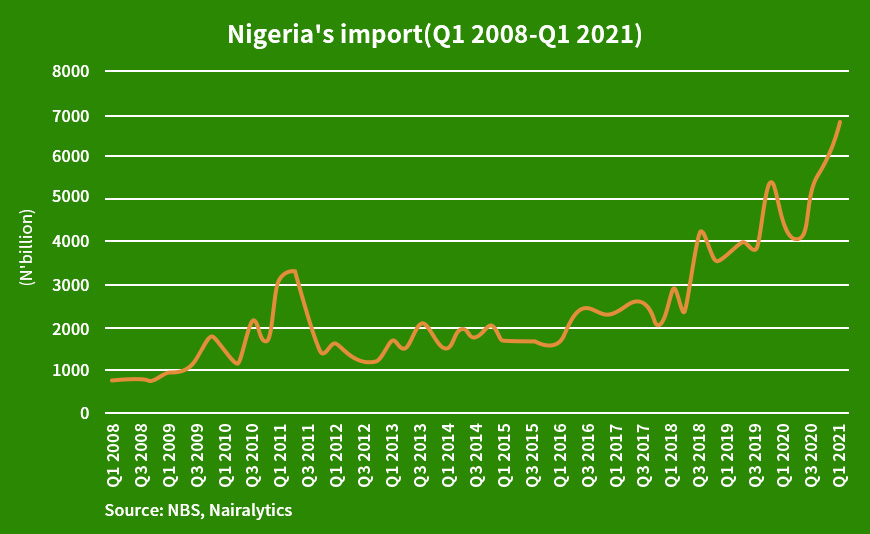
In 2021, Nigeria imported from countries around the world, and the value of goods declared at customs will reach nearly 52 billion US dollars. Imports generally rose from 2000 to a peak in 2014, although there was a sharp decline in 2009 due to the Great Global Recession following the 2008 financial crisis. The value of Nigerian imports has fluctuated over the past decade but has generally stabilized.
The List 10 imported goods in Nigeria
The top ten product categories with the highest import transaction value in Nigeria are counted below. In addition, it analyzes the share of each product category in Nigeria's overall imports.
1. Nuclear reactors, boilers, machinery, etc.: $609,921,421.3 billion (22.88%)
2. Means of transportation other than railways and trams: $264,419,561 million (9.92%)
3. Electrical and electronic equipment: $242,421,410.9 million (9.09%)
4. Plastics and products: $1,632,586,340 (6.12%)
5. Grains: $1424072822 million (5.34%)
6. Fish, crustaceans, mollusks, aquatic invertebrates ne: $809,150,490 (3.04%)
7. Steel Products: $8,041,762,500 (3.02%)
8. Steel: $729,920,122 billion (2.74%)
9. Other chemical products: $702,817.491 billion (2.64%)
10. Organic chemicals: $659,383,590 (2.47%)
Prohibited list of items to import into Nigeria
According to relevant regulations in Nigeria, at least 40 items are prohibited from being imported into Nigeria. The list of goods prohibited from import includes milk and other dairy products, meat, some luggage, footwear, etc. The list of goods prohibited from being imported into Nigeria will be updated every year, and most of them will not change.
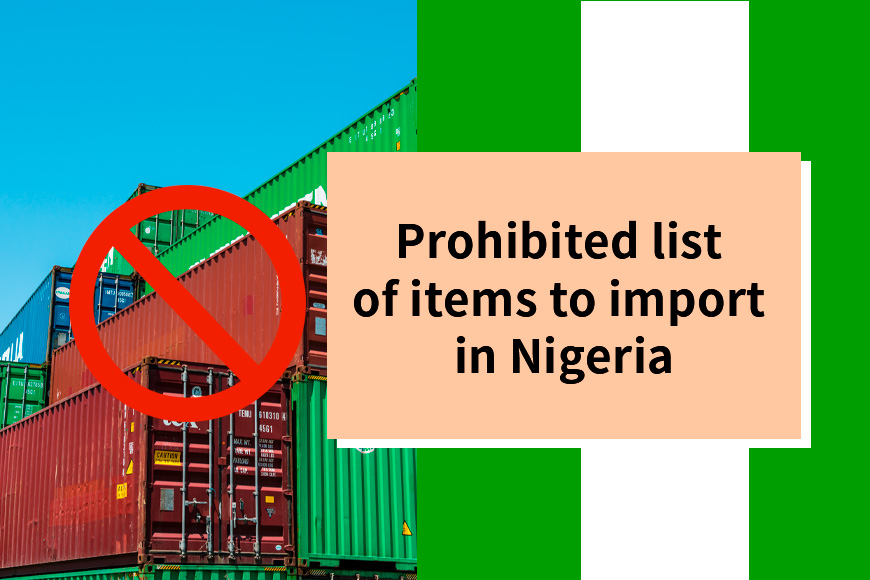
Best goods to import from China to Nigeria
Since 1996, we have established trading partners with Nigerian importers. Thirty years of trading, combined with our study and research of the best-imported goods that Nigerians will love, so we know better what kind of goods the Nigerian market needs. If you are still confused about what kind of goods to import, please contact us, and we will consult and quote for you free of charge.
Import business steps in Nigeria
Before you get in touch with the import business, you may be unable to start because of various import regulations or certificates, but once you start, you will find that it is very simple. When the entire import business is launched, we only need to have relationships with three service agencies: customs services, regulatory agencies (FIRS, SON, CBN), and authorized dealer banks.
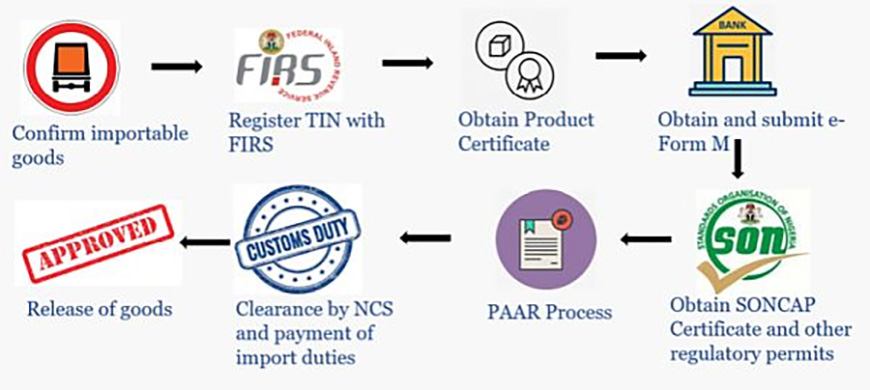
Confirm importable goods
Before starting, conduct local market research to ensure there is demand for your product in your region or country, and to ensure that your product is not on the prohibited list. You need a valid phone number and a correct email address to receive relevant verification.
Register a Nigerian company
To register a Nigerian company with the Federal Inland Revenue Service (FIRS), note that you must use the latest tax payment certificate to register the company, assign a tax ID number (TIN) according to the certificate, and mark a valid email address. Without a registered TIN, you will not be able to submit the CBN (Central Bank of Nigeria) form for your import business, and you will not be able to activate your product certificate (PC) and SONCAP certificate, import license, and product certificate online.
Build relationships with banks
Select a bank in Nigeria as an Authorized Dealer Bank (ADB). The bank will process your M/PAAR form and mediate between you (the importer), the Nigerian Customs Service (NCS), and other agencies.
Identify imported goods
Use the Nigeria Customs Service Common External Tariff (C.E.T) to find the Harmonized System (H.S.) code for the product you wish to import. The bank will guide you in selecting the appropriate H.S. code.
Once the above is done, the import process into Nigeria should be free of any unexpected complications, customs clearance will be authorized much faster and the importer will now be ready to import into Nigeria.
